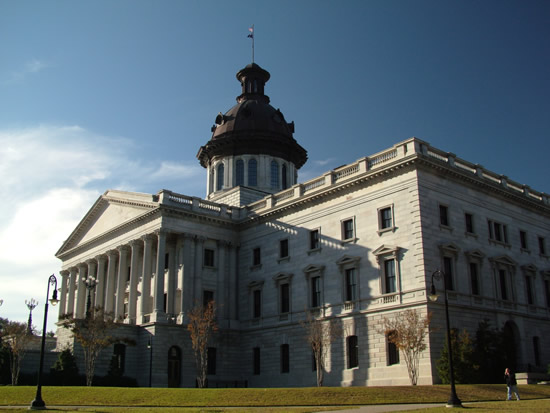South Carolina legislators have introduced a measure to pull the Palmetto State out of the Common Core national standards. Senator Mike Fair, who introduced the measure, voiced his concerns about the state’s involvement in the national standards push in the Greeneville News:
The Legislature never had a chance to review Common Core because the feds timed their deadlines for adopting them to fall when the Legislature wasn’t in session. So, to qualify for a shot at Race to the Top money in 2010, the (previous) state superintendent and the (previous) governor had to agree to adopt Common Core—standards that had not even been published yet.… By the way, SC wasn’t awarded Race to the Top money, so we sold our education birthright without even getting the mess of pottage.
Governor Nikki Haley (R–SC) recently expressed her concerns about the national standards push in an open letter, saying, “Just as we should not relinquish control of education to the federal government, neither should we cede it to the consensus of other states.”
South Carolina’s reconsideration of the national standards push has not set well with the U.S. Department of Education, despite the fact that the department claims to be uninvolved in the effort. Education Secretary Arne Duncan issued a press release in response to South Carolina reconsidering the national standards push:
The idea that the Common Core standards are nationally-imposed is a conspiracy theory in search of a conspiracy. The Common Core academic standards were both developed and adopted by the states, and they have widespread bipartisan support.
Duncan’s statement is a clear indication of just how heavily involved the federal government is with the effort. It also illustrates the amount of control that Washington stands to gain once states surrender their standard-setting authority.
The Pioneer Institute in Massachusetts just released a legal analysis of the standards push and found that the Department of Education’s involvement runs afoul of three federal laws prohibiting the federal government from getting involved in curriculum: The federal government has (1) incentivized states to adopt the standards through $4.35 billion in Race to the Top grants, (2) conditioned access to No Child Left Behind waivers on standards adoption, and (3) paid for the corresponding national assessments.
Pioneer also found that, cumulatively, implementation of the standards will cost states some $16 billion. So South Carolina has good reason to be skeptical. Fair went on to say:
It is argued that we need Common Core because it is more rigorous than our current standards. But South Carolina’s history standards, for example, have been rated the best in the country. The Common Core math standards have been evaluated by a Stanford University expert as putting most U.S. students two years behind students in higher achieving countries. And the English standards, according to a University of Arkansas expert, are inferior to S.C.’s current literature standards.
If S.C. wants to improve its standards, it can do so on the state level without locking itself into a federally directed system that destroys state autonomy.
State leaders who believe that previous state leaders have surrendered control of their standards-setting authority to national organizations and Washington have an exit strategy they can pursue. States should consider the following three strategies:
- Determine how the decision was made to cede the state’s standard-setting authority. States can exit from the national standards overreach by first determining which state entity agreed to adopt the Common Core State Standards. For most states, the state board of education is the body that made the decision.
- Prohibit new spending for standards implementation. State leaders should request an independent cost analysis of national standards adoption to inform taxpayers about the short-term and long-term costs of the overhaul.
- Determine how to reverse course. The rushed adoption of the Common Core in many cases preceded the election of 2010, which brought in new governors, legislators, and board members. Newly elected conservative leaders should be concerned about the authority handed to centralizers by their predecessors and investigate how to bring standards and curriculum control back into the hands of state leaders.
The movement to nationalize the content taught in local schools is a challenge to educational freedom in America that is costly in terms of liberty, not to mention dollars. State leaders are right to be cautious about the national standards push and should resist this latest federal overreach.

































9 Replies to “South Carolina Resisting the National Standards Push”